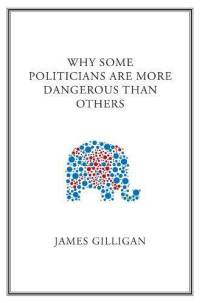Since launching in April 2012 we’ve published reviews of over 350 books from across the social sciences. Here are the top three most-read reviews from politics and international relations.
………………………………………………………………………………………………………………….
The Power of Ideology: From the Roman Empire to Al-Qaeda by Alex Roberto Hybel
 The Power of Ideology explores the multiple effects that competing ideologies have had on the world system for the past 1,700 years, covering Christianity, Islam, secularism, liberalism, communism, fascism and Nazism. Ioannis Papagaryfallou finds that Hybel offers a balanced and well- informed book, firmly embedded in history.
The Power of Ideology explores the multiple effects that competing ideologies have had on the world system for the past 1,700 years, covering Christianity, Islam, secularism, liberalism, communism, fascism and Nazism. Ioannis Papagaryfallou finds that Hybel offers a balanced and well- informed book, firmly embedded in history.
In The Power of Ideology, American academic Alex Roberto Hybel aims to illustrate the ways in which ideology has functioned as a force within the framework of the international system, and conditioned its development from the Roman Empire to the post-Cold War period. Hybel’s point of departure is not so much Political Theory but rather international relations theory in its Constructivist version.
Although Realists, Neorealists, and orthodox Marxists describe the development of the international system in terms of force and the distribution of material capabilities, Hybel argues that international actors actually aspire to impose their ideological norms upon the world system. Ideology is not just used in order to justify political action a posteriori but it also makes certain political choices appear far more plausible than others in the eyes of the actors concerned. The book covers a relatively huge historical period, it manages to substantiate the author’s main claim regarding the power of ideology. It is also worth emphasizing that Hybel does not adopt an exclusively Western point of view but shows particular sensitivity towards the value systems of non-European, and especially Asian, actors. Read the review in full…
………………………………………………………………………………………………………………….
 Why Some Politicians Are More Dangerous Than Others by James Gilligan
Why Some Politicians Are More Dangerous Than Others by James Gilligan
 Politicians and the political process, even in ostensibly democratic countries, can be deadly. James Gilligan’s book details how over the past century, whenever America’s conservative party have gained the presidency, the country has repeatedly suffered from epidemics of suicide and homicide. Daniel Sage finds the book an enlightening study, and also an important example of the increasingly powerful relationship between epidemiology and social science.
Politicians and the political process, even in ostensibly democratic countries, can be deadly. James Gilligan’s book details how over the past century, whenever America’s conservative party have gained the presidency, the country has repeatedly suffered from epidemics of suicide and homicide. Daniel Sage finds the book an enlightening study, and also an important example of the increasingly powerful relationship between epidemiology and social science.
In this new book by James Gilligan, Clinical Professor of Psychiatry at New York University, an attempt is made to solve a very particular American murder mystery. This mystery, tracked over 100 years of US data, centres upon an extremely notable pattern in longitudinal rates of homicide and suicide (‘violent death’). The pattern shows that the rate of violent death rises when a President is a Republican, and falls when a President is a Democrat.
So for example, when the Democrat Woodrow Wilson was in office between 1913 and 1920, violent death rates fell from 23.3 per 100,000 to 17.4. Then, between 1920 and 1932 – when three Republicans were president – the death rate escalated to 26.5. In today’s terms, Gilligan points out that a one-point increase the violent death rate amounts to an extra 3,000 deaths per year. When it rises by several points – as it consistently has under Republican administrations throughout the twentieth-century – it constitutes an ‘epidemic’ of violent death. Read the review in full…
………………………………………………………………………………………………………………….
 The Triumph of Politics: The Return of the Left in Venezuela, Bolivia and Ecuador by George Philip and Francisco Panizza
The Triumph of Politics: The Return of the Left in Venezuela, Bolivia and Ecuador by George Philip and Francisco Panizza

After the financial crises put free market evangelism on the defence, the message of 21st socialism has found increasing resonance across Latin America and abroad. The Triumph of Politics gives a comparative and historical overview of the governments of Hugo Chavez, Evo Morales and Rafael Correa at a time of deep divisiveness and political conflict in the region. Hassan Akram finds the book to be timely and important read, although he argues some of the political science concepts did not always suit the cases presented.
The Washington Consensus, that quasi-religious mantra of “liberalisation, privatisation and de-regulation”, is not doing too well at the moment. As the collapse of the sub-prime mortgage market in the USA turned into a full-blown global financial crisis, the aggressive defenders of free markets have found themselves on the back foot. Thus George Philip and Francisco Panizza’s The Triumph of Politics, an account of the failure of the “Miami Consensus” (the tropicallatino variant of neo-liberalism), is a particularly timely work.
Philip and Panizza focus on the “high politics” of Venezuela, Bolivia and Ecuador. Against the background of structural economic failure Presidents Chávez, Morales and Correa employed a variety of strategies to break with the ideological hegemony of “market democracy”. Their alternative, the rhetorically powerful and socially popular 21st century socialism remains difficult to define — though this is precisely what the authors bravely attempt. Read the review in full…
………………………………………………………………………………………………………………….






